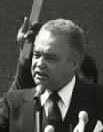 In many of America’s major cities, a sense of hopelessness and cynicism discourages political participation, especially by members of minority groups. Disengagement, in turn, undermines accountability and facilitates corruption, which exacerbates public cynicism.
In many of America’s major cities, a sense of hopelessness and cynicism discourages political participation, especially by members of minority groups. Disengagement, in turn, undermines accountability and facilitates corruption, which exacerbates public cynicism.
How can the vicious circle be broken? In a new paper on SSRN, Matt Parlow argues that neighborhood councils — “new substructures of local government that aim to involve citizens in the decision- and policy-making processes” — have the potential to raise the engagement level of minority citizens with local government. He uses Detroit to illustate the problems of local government corruption and minority political marginalization in American cities, while pointing to Los Angeles as an example of a city that has had some recent success with neighborhood councils.
Entitled “Revolutions in Local Democracy? Neighborhood Councils and Broadening Inclusion in the Local Political Process,” the paper will be published in the Michigan Journal of Race & Law. Here is the abstract:
Political marginalization of minorities and government corruption are two key factors that have led to the overwhelming decline and decay of America’s major cities. Local governments must combat the historical entrenchment of these two evils in order to reverse the trend toward demise. Neighborhood councils may be the best structural changes to local government because they provide more meaningful opportunities for political engagement of minority groups, while also serving as an antidote to systemic corruption in local government. This Essay analyzes the problems plaguing local government in urban cities and explores how neighborhood councils may be able to help address them.
